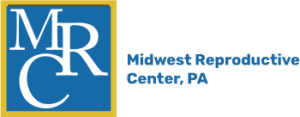Age and Infertility: Waiting can decrease the odds for getting pregnant
Fertility specialists are often asked about the veracity of the biological clock. With today’s advanced reproductive technologies (ARTS) and emphasis on healthy lifestyles, surely age no longer dictates when we procreate?
Dr. Dan Gehlbach confirms that maternal age does, in fact, negatively impact fertility. He advises women to take proactive steps to protect their fertility:
~ Women younger than age 39 that plan to delay childbearing should consider fertility preservation.
~ Women younger than 35 should see a fertility specialist after trying for 1 year to get pregnant. Over 35, consult a reproductive endocrinologist after 6 months.
Factors that lead to age-related female infertility
Women are born with a finite supply of eggs, which are stored in the ovaries and released with each menstrual cycle. Age causes these eggs to deteriorate in quality and quantity. Other factors impacting ovarian reserve (a woman’s supply of eggs) include smoking, a family history of premature ovarian failure or ovarian surgery.
By the Numbers: How Age Impacts Fertility
In your 20s, you have a 20% chance of conceiving each month. By your 40s, the odds of getting pregnant on your own drop to 5%.
• Egg quantity decreases between the time of conception and birth, drops again by puberty, and plummets by age 40.
• The ovaries’ ability to release eggs diminishes as a woman ages.
• After 40, remaining eggs are more likely to have chromosomal abnormalities.
• Pregnancies from embryos resulting from older eggs are more likely to result in miscarriages.
Targeted testing can predict fertility potential
At Midwest Reproductive Center, we advise women over 35 to see a fertility specialist after six months of unsuccessful attempts to get pregnant. Dr. Gehlbach, board certified as a reproductive endocrinologist, will oversee testing to assess ovarian reserve and hormone function.
These female infertility tests include:
• Day 3 Levels of FSH and Estradiol to measure hormones essential to achieving and sustaining a successful pregnancy
• Antral Follicle Count to assess egg supply
• Response to Gonadotropins and Clomiphene Citrate Challenge Test to predict how effectively fertility medications will stimulate the ovaries to produce
multiple eggs
Fertility treatment options for advanced maternal age include intrauterine insemination (IUI), in-vitro fertilization (IVF) and donor eggs.
According to the Centers for Disease Control: About one-third of couples in which the woman is older than 35 years have fertility problems. That’s not to say that exceptions do not occur, or that age alone guarantees success in getting pregnant. Contact Dr. Gehlbach for expert analysis on your fertility potential.



